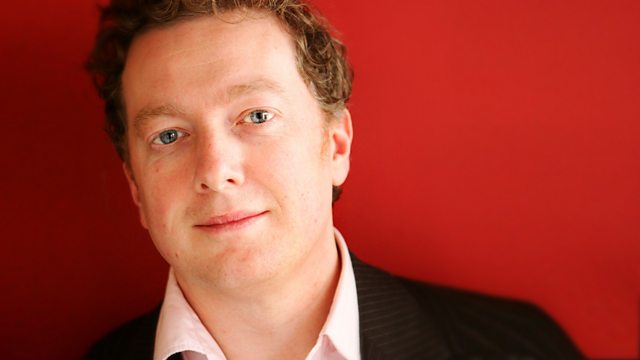
Steven Soderbergh/Steven Levitt/Hockney Retrospective
Matthew Sweet talks to film director Steven Soderbergh, who made a big impact with his first film Sex, Lies and Videotape. Plus a co-author of economics cult hit book Freakonomics.
Matthew Sweet interviews film-maker Steven Soderbergh whose voluminous back catalogue includes Che, Ocean's Eleven, Erin Brockovich, Traffic, The Good German and Solaris. His latest comedy, The informant!, stars Matt Damon as a company executive and unreliable guide to the price fixing scandal and FBI investigation enveloping his own corporation. In the interview Soderbergh talks about how he works, looks back over his contradictory output and discusses how, coming from the entertainment industry, the idea of corporate corruption holds no suprises for him.
Matthew also meets Steven Levitt, who co-authored the book Freakonomics, which changed the way economics was viewed. His follow up Superfreakonomics hopes to do the same. Writer Bryan Appleyard joins them to discuss the books' thesis that microeconomics can explain human behaviour. Superfreakonomics also explores technical solutions to climate change like geo-engineering. One propsed solution is a 'stratoshield' - a device like a garden hose that extends a hundred thousand feet up into the air and spritzes out sulphur dioxide to cool temperatures. Find out what this has to do with economics as we know it...
New arts venue Nottingham Contemporary opens with the first retrospective of David Hockney's early work since the 1970s. At 3,000 square metres and designed by architects Caruso St John, Nottingham Contemporary is among the largest contemporary art centres in the UK. It has four galleries - lit by 132 skylights - plus spaces for performance and film and has been partly excavated from the sandstone cliff it hugs. Matthew visits the centre to see the building and takes a tour of its spaces with the venue's director Alex Farquharson. He also reviews, with art critic Sarah Kent, the David Hockney exhbitition. It includes work from 1961 to 1968 when Hockney experimented with a range of styles and subject matter, not least an exploration of his crush on pop star Cliff Richard.

